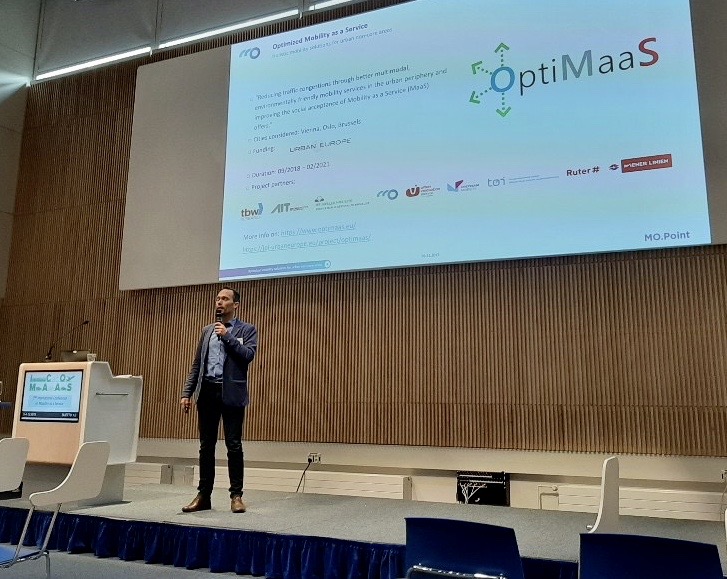Stefan Arbeithuber, managing partner of MO.Point held a presentation on OptiMaaS at the 2nd IcoMaaS in Tampere on December 3th, 2019. The presentation tackled the challenges of providing MaaS schemes at the urban fringe aiming at reducing car dependency.
He discussed solutions for overcoming the barriers for implementation and use of MaaS based mobility services. The underlying types of business models were analyzed and showed contrasting situations. Finally, he presented recommendations to embed MaaS-Systems and to align them with push-and pull-measures. Value propositions of merely digital integrators and MaaS service providers are rather independent of physical locations and can be applied for urban non-core areas too. In contrast, the value proposition of transport service providers is always dependent on the access and availability of vehicles. Revenue models of traditional transport service based on vehicle utilization are economically less attractive in less densely populated areas.
People living in urban non-core areas tend not to be the most active users of On-demand and shared mobility services yet. But this reality seems likely to change, while many people are highly private car oriented there is a growing group of people that is willing to use other modes than the private car, given the opportunity is available.
Alternative transport modes are accepted for most journeys if:
- they are easy to reach, convenient and do not lead to unnecessary delays;
- the physical mobility offer is attractive.
The physical bundling of different services in one place, so called mobility points, simplifies the access and improves the convenience when changing from one mode of transport to another.
For this purpose the OptiMaaS project team brings together the diverse stakeholder groups, like urban planners, mobility service operators, service integrators, researchers as well mobility service users and provides the framework for dialogue and co-creation. The consortium is looking forward to the results of the OptiMaaS-Labs.
